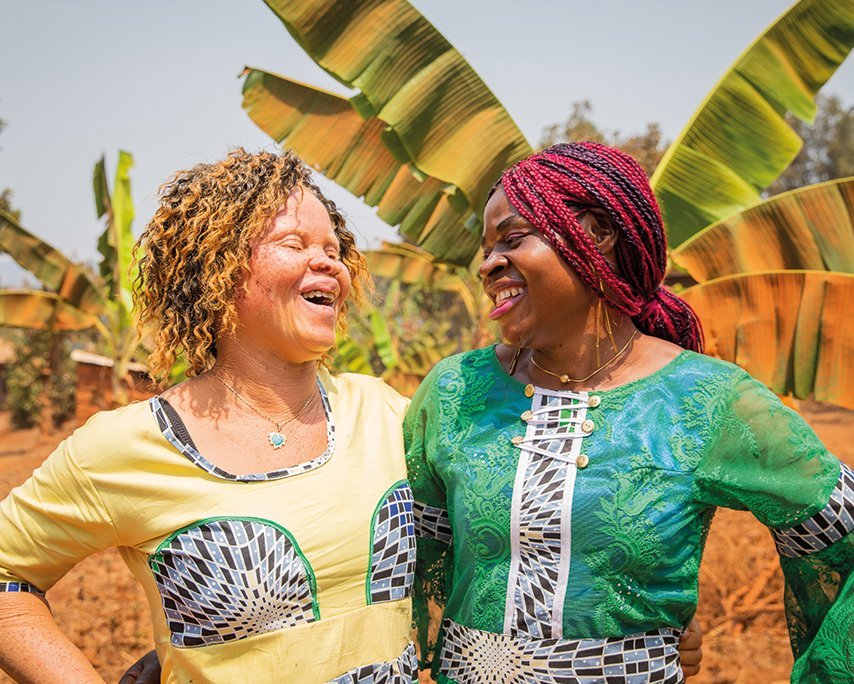Photo credit: Media Lens King/Getty Images
International Albinism Awareness Day
Violence against people with albinism seldom receives the attention or action they deserve from society and the legal system due to deeply rooted cultural beliefs, lack of awareness and social indifference. These issues present unique challenges to parents raising children with albinism and for children and adults living with the condition. As we mark this year’s International Albinism Awareness Day (IAAD), celebrating a decade of working together to make progress, “10 years of IAAD: A decade of collective progress”, the longstanding challenges continue to affect us.
There are still deeply rooted superstitions and myths surrounding albinism in our cultures, such as the belief that body parts of individuals with albinism possess magical properties. These beliefs have led to the harmful exploitation of children and individuals living with the condition. Moreover, due to these superstitions, people with albinism get ostracised and feared due to their physical appearance, which contributes to societal silence and reluctance to defend or support them. Unfortunately, such perpetrations occur among marginalised and impoverished communities, who, due to lack of education, poverty and proper health care systems, lack interest, concern or sympathy for situations that have no economic gain to them. Consequently, due to this societal indifference stemming from economic desperation and complicity, perpetrators continue to exploit people with albinism for financial gain.
It is reasonable to assert that a general lack of awareness and understanding about albinism has led to this indifference and inaction. In many areas, there is insufficient education about human rights and the specific vulnerabilities of people with albinism, leading to a lack of advocacy and support. Therefore, communities do not recognise the severity of the violence or its impact on victims, limiting their ability to seek justice and support. What is more, in some countries, laws protecting the rights of individuals with albinism are insufficient or poorly enforced. For example, limited resources for law enforcement and judicial systems have resulted in a lack of priority given to cases involving violence against people with albinism. Additionally, countries with corruption within legal and law enforcement institutions seldom investigate and prosecute crimes against people with albinism.
People with albinism require equal opportunities like everyone else because they have the same rights and abilities as anyone else. Albinism is a difference in appearance and does not affect a person’s skills, talents, or worth. Giving them equal opportunities allows them to reach their full potential and contribute to society like anyone else. Therefore, we need to work towards eliminating challenges they face, such as health issues, stigma and discrimination and educational barriers, to give them a chance at a normal life. For example, we need to ensure children with albinism get the appropriate visual aids or glasses specifically designed for low vision and equip classrooms with braille books, screen readers and tablets to help them access information easily. Equally, there has to be strict enforcement of anti-bullying policies and laws that protect people with albinism.
It is not all loss during this year’s IAAD. On a more positive note, there have been widespread campaigns to educate the public about albinism, debunking myths and misconceptions. Such campaigns have seen increased representation of individuals with albinism in media and advertising, which helps normalise and celebrate diversity. There have also been inclusive health and education programmes where countries have established clinics and healthcare programmes for individuals with albinism and provided scholarships and grants to support their education. Nevertheless, until universal equality is realised, it remains crucial to advocate actively and persistently for change.



